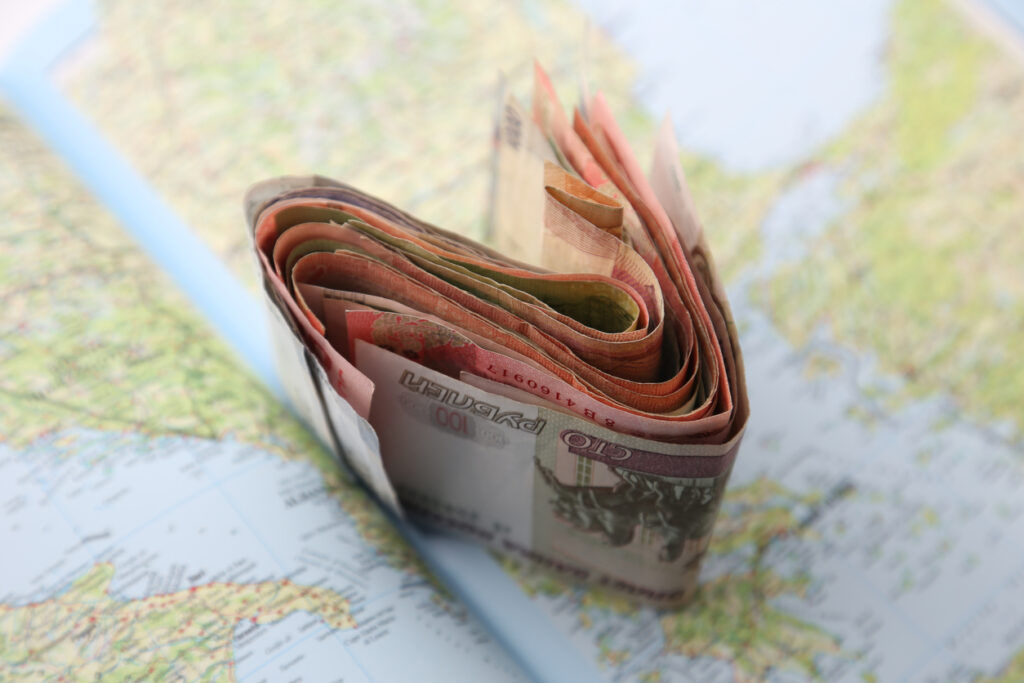Let’s be honest: the words “Streamlined Filing Procedures” sound like something dreamed up by a government agency determined to make sure you never find out what they actually are.
But underneath the bureaucratic name is something surprisingly kind: a rare opportunity from the IRS to say, “Hey, if you didn’t know you were supposed to report your worldwide income or file your foreign bank accounts in an FBAR from your new life abroad… we’re not mad. Just fix it.”
Designed for U.S. expats, permanent residents, and others who missed tax filing or information return deadlines for non-willful reasons (read: you didn’t know, not that you were hiding a yacht in Monaco), the streamlined filing procedures are a legit way to catch up without getting crushed by FBAR penalties or civil fines.
This guide doesn’t just tell you what the program is—we walk you through exactly how to do it, what forms to file (hello, Form 14653), and how to write the kind of certification statement that keeps the IRS happy and you out of trouble. If you’re ready to file—or almost ready—we’ve got your back.
📋 Key Updates for 2025
- The IRS is placing greater emphasis on the clarity and credibility of non-willful conduct explanations in certification statements.
- While Form 8938 thresholds remain unchanged, increased international data sharing is making underreporting easier for the IRS to detect.
- Before filing, make sure your ITIN is active—expired identification numbers can delay or invalidate a streamlined submission.
Who qualifies for the IRS Streamlined Filing Compliance Procedures?
Before you jump into paperwork mode, here’s the first (and most important) question: Do you qualify?
The Streamlined Filing Compliance Procedures were built for people who genuinely didn’t know they were supposed to file U.S. tax returns, information returns, or report offshore accounts while living abroad. That includes U.S. citizens, green card holders, and long-term residents with foreign income—especially those who never got the memo about the foreign earned income exclusion, FBAR, or the IRS’s love for acronyms.
To be eligible, you must meet two main criteria:
1. You acted non-willfully
This is the IRS’s way of saying: you weren’t hiding money on purpose, you just didn’t know you had to file. You’ll need to certify that your non-compliance was due to a lack of understanding—not intentional evasion. (And yes, you’ll be signing that certification under penalty of perjury, so now’s not the time to get creative.)
2. You meet the residency requirement
There are two versions of the program:
- SFOP (Streamlined Foreign Offshore Procedures): For those who lived outside the U.S. for at least 330 full days in one of the last three years.
- SDOP (Streamlined Domestic Offshore Procedures): For those who primarily lived in the U.S. but still missed reporting their offshore finances.
Your eligibility hinges on where you lived during the relevant tax years, so read the fine print—or better yet, have a CPA or tax professional walk through it with you.
And one more thing: if you’ve already been contacted by the IRS or are being audited? This program probably isn’t for you. (Sorry.)
The good news? If you’re like most U.S. expat tax filers—late on your amended tax returns, overwhelmed by forms, but absolutely trying to do the right thing—you’re probably in the clear.
Streamlined Domestic vs. Foreign Offshore Procedures (SDOP vs. SFOP)
Once you know you qualify for the streamlined filing procedures, your next question is: Which version do I use—SDOP or SFOP?
It all comes down to where you were living during the relevant tax years and whether you meet the IRS’s strict non-residency test.
1. SDOP (Streamlined Domestic Offshore Procedures)
Designed for U.S. residents—people who live in the U.S. but failed to report foreign income, accounts, or assets.
If this is you, the IRS is offering a path to compliance… with a small catch.
You’ll need to pay a Title 26 Miscellaneous Offshore Penalty equal to 5% of the value of your foreign financial assets that should’ve been reported.
This penalty covers FBAR violations and other civil penalties, but not criminal charges—because again, this program is for non-willful conduct only.
2. SFOP (Streamlined Foreign Offshore Procedures)
For those living outside the U.S.—including permanent residents and U.S. citizens who meet the non-residency criteria (330+ days abroad in one of the past three tax years).
Good news: there’s no penalty under SFOP.
But there’s a trade-off—you’ll need to meet a stricter residency requirement, and you’ll still need to submit full documentation, including amended tax returns, late FBARs, and a statement certifying your non-willful conduct.
Not the same as OVDP
Don’t confuse these with the now-retired Offshore Voluntary Disclosure Program (OVDP). That program was for people with willful violations who needed to avoid criminal prosecution. The streamlined procedures are for honest mistakes—not offshore shell companies in the Caymans.
Still not sure which track is right for you? Our tax guide on streamlined filings can help, or better yet—connect with a tax professional who can evaluate your eligibility requirements and recommend whether e-filing or paper filing is the best move.
Step-by-step guide to filing under Streamlined Filing Procedures
The streamlined filing process involves several key steps, each designed to bring you back into compliance without triggering penalties. While the paperwork can be extensive, the requirements are straightforward once you know what to prepare and how to organize it.
Step 1: Confirm your qualifying status and choose SDOP or SFOP
Start by determining if you’re eligible—and which version of the program applies.
If you’re living in the U.S., you’ll likely use SDOP; if you’re abroad and meet the non-residency requirement, it’s SFOP.
Not sure? Revisit the eligibility requirements in the section above or talk to a tax professional before moving forward.
Step 2: Gather all relevant financial data
You’ll need documentation for:
- Foreign bank accounts (balances, ownership, account numbers)
- Foreign corporations, trusts, or partnerships you’re involved in
- Other foreign financial accounts—brokerage, pension, or investment accounts held abroad
💡 Pro Tip:
If you’ve had trouble gathering this info due to failure to file in previous years, request historical data from your bank or financial institutions early. It can take time.
Step 3: File three years of U.S. income tax returns
You’ll prepare and submit amended U.S. individual income tax returns (Form 1040X) for the most recent three years that required corrections.
Make sure to include foreign income (yes, even if you qualify for the Foreign Earned Income Exclusion) and any other missing disclosures.
Step 4: File six years of delinquent FBARs (FinCEN Form 114)
FBARs must be filed electronically through the BSA E-Filing System.
If you missed filing them, you’ll now submit six years of delinquent FBARs to avoid harsh FBAR penalties.
Don’t forget: these are separate from your tax returns—but just as important.
Step 5: Include all required information returns
Depending on your financial situation, you may need to file additional forms, such as:
- Form 8938 (for foreign assets)
- Form 5471 (for foreign corporations)
- Form 3520 or 3520-A (for foreign trusts or gifts)
Skipping these is one of the most common triggers for IRS scrutiny, so double-check what applies to you.
Step 6: Prepare and sign the certification statement
This is where you formally state that your failure to file was due to non-willful conduct.
Use:
- Form 14654 (for Streamlined Domestic Offshore Procedures)
- Form 14653 (for Streamlined Foreign Offshore Procedures)
💡 Pro Tip:
The statement is signed under penalties of perjury, so be clear, specific, and honest. If you’re unsure how to phrase it, it’s wise to get help from a CPA or tax attorney.
Step 7: Provide your ITIN or Identification Number
If you already have a Social Security Number (SSN) or ITIN, you’ll include that here.
If not, you’ll need to apply for one using Form W-7 before submitting your streamlined package.
Step 8: Submit everything and keep a complete copy
Once your tax filing package is complete—including all returns, information returns, FBARs, and your certification statement—you’ll send it to the IRS by mail. (Yes, even in the age of e-filing, this one’s old-school.)
Hold on to a full copy for your own records in case the IRS requests clarification later.
Not exactly a spa day—but definitely worth it to avoid penalties and finally check this off your to-do list.
Writing the Certification Statement: What the IRS is looking for
The certification statement is one of the most important components of your streamlined filing package. It’s where you explain to the IRS—clearly and credibly—why your failure to report foreign income or assets was non-willful.
This isn’t the place for vague excuses or emotional appeals. The IRS is looking for a factual, well-organized explanation that demonstrates a genuine lack of understanding—not intent to conceal.
Here’s what to include:
1. A specific, non-willful reason for non-compliance
Describe what led to the oversight. For example, you may not have realized that income in another country was still subject to U.S. reporting, or that you needed to file an FBAR or information returns alongside your income tax return.
2. What changed
Explain how you became aware of your filing obligations. Maybe you spoke with a CPA, learned about international tax rules from a trusted source, or were preparing to file under another program and discovered the streamlined option.
3. Context around the timing
Tie your explanation to a particular tax year, event, or misunderstanding of specific tax law—the more detail you provide (without overexplaining), the better. The IRS wants to see that you understand what went wrong and how you’re fixing it.
4. Be precise, not evasive
Avoid overly broad language like “I didn’t know I had to file anything.” The IRS reads hundreds of these statements. Specificity shows sincerity. If you’re unsure how to frame something, this is a good moment to seek legal advice or guidance from a cross-border tax expert (like Bright!Tax).
This statement is submitted using Form 14653 (for SFOP) or Form 14654 (for SDOP) and must be signed under penalties of perjury. In other words, accuracy matters—not just for your approval, but for your legal protection.
How long does Streamlined filing take—and what to expect after submission
Once your streamlined filing package is postmarked, you are considered compliant and the hardest part is behind you—but the waiting begins.
The IRS typically takes 6 to 12 months to process submissions under the Streamlined Filing Compliance Procedures. During that time, you won’t receive a confirmation or acknowledgment unless there’s a problem. No news is good news.
That said, it’s important to be aware of what could happen next:
- You may receive a letter requesting clarification or additional documentation. This doesn’t necessarily mean your submission is in trouble—it’s often procedural.
- In rare cases, if the IRS has reason to question your eligibility, non-willful conduct, or completeness of your submission, they may initiate an examination (audit).
- If the IRS ultimately finds material errors or inconsistencies, civil penalties or additional filing requirements could apply—but this is uncommon for well-prepared, good-faith filings.
Once submitted, keep a complete copy of everything for your records, and monitor your mail (and your nerves) with patience. If six months go by and you hear nothing, that’s typically a sign that your filing is quietly moving through the system as intended.
💡 Pro Tip:
Don’t contact the IRS before submitting your streamlined filing—unless a tax attorney advises you to. The exception? If your situation involves legal complexity, prior contact with the Criminal Investigation division, or a high-risk compliance history.
Can I file IRS Streamlined Procedures myself? When to get help
Yes—you can file on your own. But the real question is whether you should.
The Streamlined Filing Procedures are designed to be accessible, but they still involve technical forms, strict documentation requirements, and detailed understanding of U.S. tax law—especially as it applies to foreign income, foreign bank accounts, and information return filings.
For some taxpayers, a DIY approach is possible. But it comes with real risks:
- Missing a required form (like a foreign corporation disclosure or FBAR)
- Misunderstanding how to apply the foreign earned income exclusion
- Incomplete or inconsistent U.S. tax returns
- Writing a vague or flawed certification statement
- Triggering an audit or rejection due to errors
Here’s when it’s smart to get help from a tax attorney or international tax specialist:
- You have a complex foreign structure (e.g., corporations, partnerships, or trusts)
- You’re unsure whether you need an ITIN, or your ITIN status is unclear
- You’re struggling to explain your non-willful conduct in a concise, credible way
- You’re overwhelmed by how to coordinate income tax return corrections with FBAR filings or other reporting requirements
Getting professional guidance can save you time, reduce stress, and prevent costly mistakes. It also ensures that you’re fully protected—especially when signing documents under penalties of perjury.
Need support with Streamlined filing? Bright!Tax can help
Streamlined filing is too important to get wrong. If you’re unsure about your eligibility, overwhelmed by forms, or nervous about what to say in your certification statement, Bright!Tax can help.
We specialize in helping expats and permanent residents file accurately—handling everything from amended returns and FBARs to ITINs and information returns. Get in touch with us today for expert help with your streamlined filing—and cross this off your list for good.
Frequently Asked Questions
-
What are the Streamlined Filing Procedures?
They’re an IRS amnesty program that allows eligible taxpayers to catch up on missed U.S. tax returns, FBARs, and other foreign asset reporting—without facing the usual penalties. It’s available to people whose failure to file was non-willful, meaning unintentional or due to lack of understanding.
-
Who qualifies for streamlined filing?
You must:
- Have failed to file required returns or reports (like Form 8938 or FBAR)
- Certify that your non-compliance was non-willful
- Meet either the foreign residency test (for SFOP) or be a U.S. resident (for SDOP)
- Not be under IRS audit or investigation
-
What’s the difference between SDOP and SFOP?
- SDOP (Streamlined Domestic Offshore Procedures) is for U.S.-based taxpayers and includes a 5% penalty on undisclosed foreign assets.
- SFOP (Streamlined Foreign Offshore Procedures) is for those living abroad who meet strict residency criteria—and has no penalty.
-
What forms do I need to submit?
- Three years of U.S. tax returns (Form 1040)
- Six years of FBARs (FinCEN Form 114)
- Any missed information returns (e.g., Form 8938, 5471, 3520)
- A signed certification statement: Form 14653 (SFOP) or Form 14654 (SDOP)
-
How long does streamlined filing take?
The IRS generally takes 6 to 12 months to review a submission. You won’t receive confirmation unless there’s a problem or they need more information.
-
Should I contact the IRS before filing?
No. Unless a tax attorney specifically recommends it, you should not contact the IRS in advance. Submitting a complete, accurate package is usually the best course of action.
-
Can I file on my own?
You can—but it’s not always advisable. Many taxpayers choose to work with a CPA or international tax professional due to the complexity of the process and risk of error. Mistakes can result in rejection or audit.
-
Can I claim the Foreign Earned Income Exclusion (FEIE) when filing under this program?
Yes. You can retroactively claim the FEIE on your amended returns to reduce or eliminate back taxes owed.
-
Can I use the streamlined procedures if I have a foreign corporation or trust?
Yes, but the forms and disclosures are more complex. Professional help is highly recommended in these cases.
-
What happens if I don’t file at all?
If you’re eligible and don’t act, you may face full FBAR penalties, IRS enforcement, or even lose access to the program entirely. Streamlined filing is a limited opportunity to fix past mistakes—before the IRS contacts you.

 Connect on LinkedIn
Connect on LinkedIn


